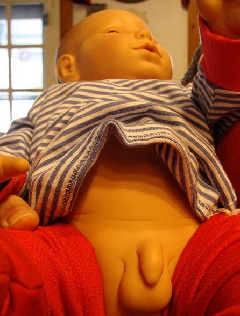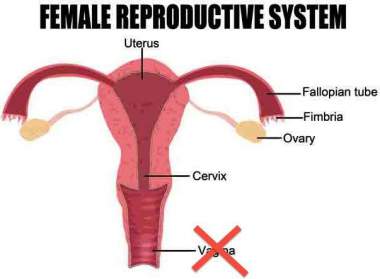April is National Child Abuse Prevention Month
This article contains language some readers may find unsuitable for adults. This warning does not apply to children for whom certain words are not only perfectly suitable but necessary.
In 1983, President Reagan proclaimed April to be the first National Child Abuse Prevention Month, a tradition which continues to this day. More details on our government's response to the problem of child abuse and neglect in America can be found at the Office on Child Abuse and Neglect.
I don't want to belittle the Fed's efforts to prevent the mistreatment of children; the TV public service announcements that ask viewers to "Take time out. Don't take it out on your kid," are somewhat helpful, but do not directly address the problem of sexual abuse of children except for various uncoordinated efforts by different government agencies, for example, the Centers for Disease Control and Prevention has this PDF on how to create a safe environment for youth who participate in organization-sponsored activities such scouting, zoo outings, soccer practices, after-school programs, etc.
As well, there are many private groups, such as the National Sexual Violence Resource Center, working toward the same goals. Notwithstanding all the good intentions of government and non-governmental organizations, I believe the real problem is that we, as a society, make it almost impossible for children to be able to communicate to parents or authorities about abuse when there is embarrassment and stigma attached to their private parts. There would be much less inappropriate touching of children if little Johnny knew the words and did not feel too ashamed to say, "Hey mom, uncle Harry wants me to stroke his penis."
I was not brought up to be ashamed of my body and so the words 'vagina' and 'penis' do not enter my brain as any more incendiary or licentious than the words for any other body parts such as 'finger' or 'elbow.' I know that for some of my readers the words 'vagina' and 'penis,' to their delicate ears, sound no different than the words 'pussy' and 'cock,' and so when they hear that these words are being taught in grammar schools (or even high schools) they become quite shocked.
Anatomical Honesty is Best for the Child
But such oversensitivity, some would call it prudery, is not truly in the best interests of the child. Sex-abuse prevention educators report that it's easier for children to understand that "private parts" are off limits to others if they are comfortable using accurate and non-euphemistic terms for these parts (1). Yes, that means teaching them the words 'vagina' and 'penis' will in the end make them safer, saner, and less likely to grow up ashamed of their body or unable to articulate inappropriate behavior.
A parent who removes a child from a class that uses anatomically accurate words enforces in children the idea that their questions or concerns about sexual matters will get them in trouble. Pedophiles use this enforced silence to continue their predation of these poor children.
Do you know what happens to children who are taught to be ashamed and to never use those words? They grow up to be parents who do not want their offspring, fourteen- and fifteen-year-olds, to hear the word "vagina" in a sophomore high school class where the biology of human reproduction is taught (2). Here's a newsflash to those parents: your kids not only already know these words, but as well they text each other using much stronger words.
Makes one wonder if these parents would forbid the word 'Uranus' be used in a class on Astronomy; or even deny the words 'Lake Titicaca' in a class on South American Geography.
As a public service to high school biology teachers, I offer these few substitutes for the word 'vagina' taken from my post 1500 Alternate Words for Vagina: baby chute, hoo-hoo, bearded clam, ya-ya, fish taco, snapper, beef garage, serpent socket, fun tunnel, jing-jang, papaya, and Beetle bonnet.
N.B. Please do not take my lighthearted approach in this post to mean I do not take seriously the consequences of the sexual abuse of children. We must not let our puritanical upbringing prevent us from doing what is best for our children.
ENDNOTES
(1):
The Atlantic, 15 Apr 2013, The Case for Teaching Kids 'Vagina,' 'Penis,' and 'Vulva'
In the last year, Rohdenburg, who works in New England's Upper Valley, a region that straddles the New Hampshire-Vermont border, has said "penis" and "vagina" in the public school classrooms of more than 500 children, K through 12. She's said "penis" and "vagina" with their teachers and parents, too, some 400 or so in all. As part of the growing movement to implement abuse prevention in schools and other youth-serving organizations, Rohdenburg and other educators believe that teaching what linguists call "standard" dialect for body parts -- rather than euphemisms and colloquialisms -- is important. Teaching children anatomically correct terms, age-appropriately, says Laura Palumbo, a prevention specialist with the National Sexual Violence Resource Center (NSVRC), promotes positive body image, self confidence, and parent-child communication; discourages perpetrators; and, in the event of abuse, helps children and adults navigate the disclosure and forensic interview process.
(2):
The Wire, 27 Mar 2013, A High-School Sex-Ed Teacher Is Being Punished for Saying the Word 'Vagina'
Tim McDaniel, an 18-year vetaran of the biology department at the public school in Dietrcich, Idaho, might have to figure out how to teach the miracle of life to his high-school students without saying the word "vagina" after a group of unhappy parents found the word offensive. Because now he's kind of in big trouble for, you know, doing his job in the teen pregnancy capital of Idaho. According to what McDaniel told Twin-Falls's Times-News, four parents at the school complained that he taught their children "the biology of an orgasm" and said the word "vagina" during his sex-education lesson to a room of sophomores. Yes, sophomores, some of whom have had vaginas for 14 to 15 years. It's unclear whether the word "penis" was met with equal offense.



